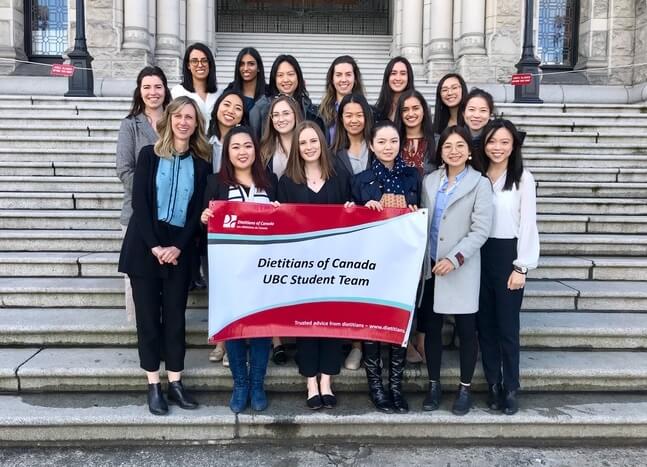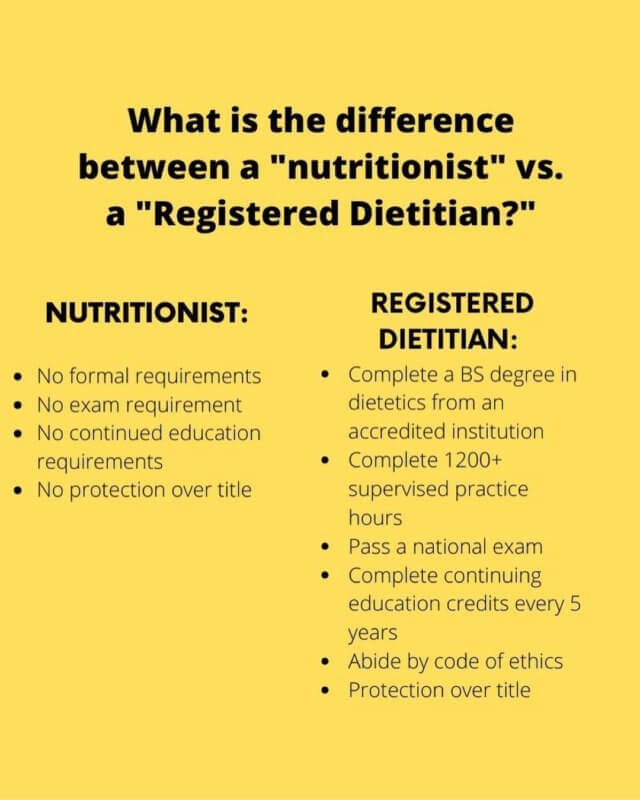All Categories
Featured
Table of Contents
-1
In the USA and many various other nations, a dietitian is a board-certified food and nutrition expert. They are very enlightened in the field of nutrition and dietetics the scientific research of food, nourishment, and their influence on human wellness. Through comprehensive training, dietitians get the proficiency to offer evidence-based medical nutrition treatment and dietary therapy customized to satisfy a person's needs.
-1To gain these credentials dietitians-to-be have to first earn a bachelor's degree or equal credit histories from a certified program at an university or college. Generally, this needs an undergraduate scientific research degree, including courses in biology, microbiology, organic and inorganic chemistry, biochemistry, composition, and physiology, as well as more specialized nourishment coursework.
Geriatric Nutritionist
-1This permits them to assess severe demands, focusing on life-threatening problems. Inpatient and outpatient dietitians additionally provide nourishment education to people with specialized requirements, such as those newly out of surgical procedure, in cancer treatment, or diagnosed with persistent health problems like diabetes or kidney condition. In the outpatient setting, they give much more thorough dietary counseling working towards a nutrition-oriented objective.
-1They can additionally advocate for public laws with a focus on nutrition, food, and wellness problems. Research study dietitians usually function in research study health centers, companies, or universities. They run within a research group headed by a primary investigator and accomplish nutrition-focused treatments. As soon as dietitians have gained their qualifications and are operating in the field, they can go on to focus on a specific subcategory, such as pediatrics or sports dietetics.
-1They might furthermore show in an academic or research organization or cover nutrition-related topics. Others may work as health and nourishment professionals in media or as public speakers. Dietitians are certified to take care of nutrition therapy across a period of acute and persistent problems. The kind of conditions they deal with depends most on the setting of their practice.
Registered Dietitian
-1In many states, such as Alaska, Florida, Illinois, Maryland, Massachusetts, and Pennsylvania, RDs and CNSs are granted the exact same state permit, normally called a Certified Dietitian Nutritional Expert (LDN) license. In states that don't regulate using this term, any person with an interest in diet plan or nutrition may call themselves a nutritionist.
-1Due to the fact that uncredentialed nutritional experts commonly do not have the experience and training for clinical nutrition treatment and nourishment therapy, following their suggestions might be taken into consideration unsafe (). Before consulting a nutritionist, you may intend to examine whether your state controls who may use this title. In the U.S. states that do not control the term, no degrees or credentials are needed to be a nutritional expert.

-1
In states that do mandate licensure, the CNS or RD credential may needed. Those with CNS qualifications are health and wellness specialists like registered nurses or doctors with innovative health and wellness levels who have actually looked for additional coursework, completed monitored method hours, and passed an exam overseen by the Board for Certification of Nutrition Specialists.
-1While a few of these methods may have robust clinical backing, others might not. Giving nutrition advice without the correct understanding and training can be damaging, particularly when counseling those with health conditions. If you are thinking about consulting a nutritionist, you may want to ask if they are a CNS or have state licensure or certification, or one more credential.
Certified Nutrition Specialist – Cardup
-1Several states especially manage this term. Additionally, nutritional experts might go after a sophisticated CNS certification.
-1It can be challenging to help people make genuine, enduring changes in their lives. Both dietitians and nutritionists supply a variety of nutrition-based services to customers.
-1They must have finished some level of education and learning in their area. They are also required to have completed up to a year of monitored job, working within an assisted program at a health care facility, catering company, or community body. Dietitians have much better assumptions positioned on their abilities and level of expertise.
-1This means that there is no body that manages their credentials and no particularly stringent standards that nutritionists demand to follow in order to be able to exercise. Dietitians, on the various other hand, are signed up with across the country identified bodies, such as the Dietitians Organization of Australia. They have to comply with the National Expertise Requirements for Dietitians.
Weight Loss Programs

-1
However, you can practice as a nutritional expert without the exact same degree of certification as a dietitian. Nutritional expert training courses can vary in size and high quality, with some as short as six weeks and covering far less material than a dietetics training course. Depending on your education and learning company, you can get a significant amount of expertise with studying an easy nutrition course; nonetheless it is very important to examine the program content before beginning.
-1This can include participating in industry seminars or checking out market magazines. Nutritional experts, on the various other hand, generally gain their credentials in order to supplement various other certifications and give much better advice to their clients. Nutritional experts can get work in a wide variety of areas, consisting of public health and wellness guidance, guidance for individuals, and collaborating with personal organisations.
-1Nutritionists can deal with sporting organisations, health clubs, schools and suggest media electrical outlets on fundamental terminology and proper use of terms. Typically, people will certainly look for the solutions of a nutritional expert to help them in obtaining right into form. Dietitians can function in a lot of the same roles as nutritional experts. With a greater degree of certification, they can easily get in a duty that a nutritionist would hold, supplied they are or else equal.
Registered Dietitian Eating Disorders
-1Dietitians usually collaborate with more clinically delicate clients. These can include those with diabetes mellitus, allergic reactions, excessive weight, cancer cells and stomach illness. Due to the high degree of knowledge required to provide solutions to these individuals, just approved dietitians are permitted to give treatment. A few of the greater degree duties with health care organizations can be extremely rewarding, and pay quite well.
-1In Australia there is a difference in between a dietitian and other dietary health and wellness companies including nutritionists. All dietitians are nutritionists, however nutritional experts without a dietetics certification can't call themselves a dietitian.
-1Dietitians with the Accredited Practising Dietitian (APD) credential dedicate to ongoing training and education throughout their careers. They stick to our standard procedure. Dietitians have the expertise and abilities discovered in the National Proficiency Standards for Dietitians. As an occupation, nutritional experts are not managed in Australia under NASRHP or licensed under a single regulative body.
Digestive Health Nutrition
-1If you have a persistent wellness condition and a care plan from your General practitioner, you might be able to assert a Medicare refund when you see an APD. The main objective of people working in the career of dietetics is personified in this statement: The profession of dietetics adds to the promo of health and the avoidance and therapy of illness by optimizing the nutrition of populaces, areas and individuals. Registered Dietitian for Weight Loss.
Latest Posts
Tips To Find The Right Dietitian To Work With
Tips To Find The Right Dietitian To Work With (Warnbro )
Corporate Wellness